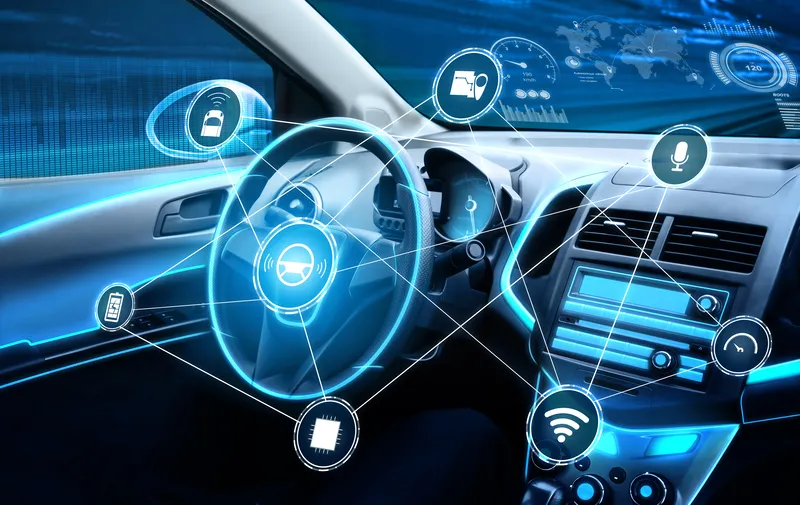The UK’s first demonstration of a remotely-operated autonomous vehicle service for people with reduced mobility has been successfully completed as part of the GATEway project (Greenwich Automated Transport Environment), led by TRL.
Taking place at the InterContinental Hotel in the Royal Borough of Greenwich and completed using an autonomous-enabled Toyota Prius, the demonstration marked the end of a fortnight of testing in which GATEway partners Gobotix and O2 were able to successfully demonstrate remote
January 4, 2017
Read time: 3 mins
The UK’s first demonstration of a remotely-operated autonomous vehicle service for people with reduced mobility has been successfully completed as part of the GATEway project (Greenwich Automated Transport Environment), led by TRL.
Taking place at the InterContinental Hotel in the Royal Borough of Greenwich and completed using an autonomous-enabled1686 Toyota Prius, the demonstration marked the end of a fortnight of testing in which GATEway partners Gobotix and O2 were able to successfully demonstrate remote operation of an unmanned vehicle.
The demonstration aimed to show how near-market technology could benefit disabled and older drivers with limited mobility. Using proof of concept technology developed by Gobotix, a wheelchair user drove himself to his final destination before disembarking. The driver then enlisted the support of a remote operator to park his vehicle using 3G and 4G cellular technology from telecommunications provider O2. For specific situations when cellular coverage would not be possible, e.g. underground car park, the user can also control the vehicle using an app on their own tablet device to manoeuvre or park it from a short distance using in-car wi-fi.
The technology is the product of more than two years’ work from experts at Gobotix and works on many vehicles which have increasingly common electronic controls and sensors. Using forward facing sensors, the software interprets images and communicates with the vehicle’s systems to enable remote operation by a computer or smartphone. Connectivity is provided by a machine-to-machine SIM that is able to tap into any network and works on 3G and 4G, while the video feed on the vehicle is used to facilitate obstacle detection and adjust speed accordingly.
The system is a first of its kind solution for remote operation and, unlike other autonomous technologies, will enable cars to be driven semi-autonomously in areas that have not been mapped. It also enables remote recovery of fully automated vehicles should something go wrong, such as software faults or sensor breakdowns. Using the technology a human operator can intervene to remotely navigate vehicles back to a safe location or state of operation.
“Everyone is waiting for the arrival of fully automated vehicles, but there’s a lot that vehicle manufacturers can be doing already with existing technology to help improve accessibility and mobility for older and disabled drivers, ” said Dr Ben Davis, technical director, Gobotix.
“Many modern cars can be adapted so that they are driveable by a remote pilot and what we’ve demonstrated as part of GATEway is proof of that. By offering a remote operation service, we can remove common concerns around boarding and alighting. It’s about empowering those with reduced mobility to retain independence through the use of technology.”
Taking place at the InterContinental Hotel in the Royal Borough of Greenwich and completed using an autonomous-enabled
The demonstration aimed to show how near-market technology could benefit disabled and older drivers with limited mobility. Using proof of concept technology developed by Gobotix, a wheelchair user drove himself to his final destination before disembarking. The driver then enlisted the support of a remote operator to park his vehicle using 3G and 4G cellular technology from telecommunications provider O2. For specific situations when cellular coverage would not be possible, e.g. underground car park, the user can also control the vehicle using an app on their own tablet device to manoeuvre or park it from a short distance using in-car wi-fi.
The technology is the product of more than two years’ work from experts at Gobotix and works on many vehicles which have increasingly common electronic controls and sensors. Using forward facing sensors, the software interprets images and communicates with the vehicle’s systems to enable remote operation by a computer or smartphone. Connectivity is provided by a machine-to-machine SIM that is able to tap into any network and works on 3G and 4G, while the video feed on the vehicle is used to facilitate obstacle detection and adjust speed accordingly.
The system is a first of its kind solution for remote operation and, unlike other autonomous technologies, will enable cars to be driven semi-autonomously in areas that have not been mapped. It also enables remote recovery of fully automated vehicles should something go wrong, such as software faults or sensor breakdowns. Using the technology a human operator can intervene to remotely navigate vehicles back to a safe location or state of operation.
“Everyone is waiting for the arrival of fully automated vehicles, but there’s a lot that vehicle manufacturers can be doing already with existing technology to help improve accessibility and mobility for older and disabled drivers, ” said Dr Ben Davis, technical director, Gobotix.
“Many modern cars can be adapted so that they are driveable by a remote pilot and what we’ve demonstrated as part of GATEway is proof of that. By offering a remote operation service, we can remove common concerns around boarding and alighting. It’s about empowering those with reduced mobility to retain independence through the use of technology.”








